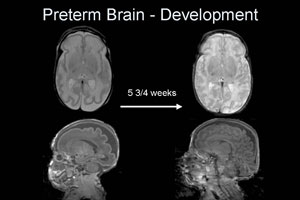By Deirdre Kennedy.
It is well known that strokes can happen in the elderly. But what many people don't know is that babies suffer strokes. So an entire month, May, has been dedicated to childhood stroke awareness. Infants often don't show the same symptoms as adults and because babies can't tell us when they're having problems moving or thinking. There is just a lot less known about infant strokes.
A stroke happens when the blood supply is cut off from a part of the brain or a blood vessel bursts and causes a build up of pressure in the brain. Doctors can tell that a child has had at stroke as an infant by taking an MRI of the brain. Researchers at UCSF Children's Hospital are working to develop early treatments for babies who suffer from stroke before it causes long-term brain problems. Donna Ferreiro, Chief of Child Neurology at UCSF and one of the nation's leading experts on neurological complications in babies, says a baby with a stroke can look completely normal.
"Often those strokes get missed in the nursery because these are babies who generally look well, they're cherubic, they weigh the right amount, they feed ok...It's not until they're older and then all of a sudden the parents notice that they're only reaching with one hand, and not both hands like they should, or that when they try to stand up and walk they topple to one side".

